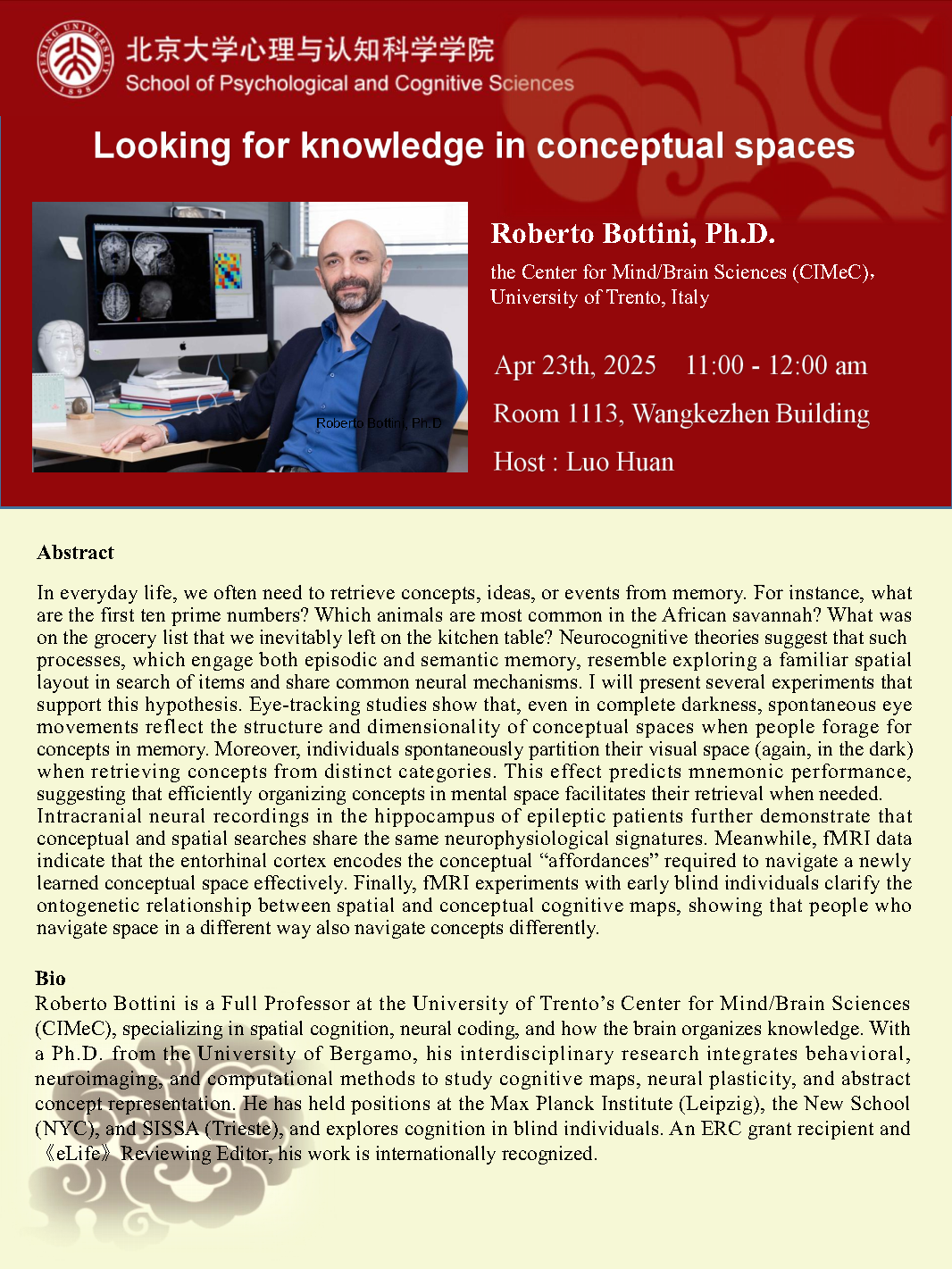Speaker:Roberto Bottini, Ph.D. the Center for Mind/Brain Sciences (CIMeC),University of Trento, Italy
Time: 11:00-12:00, Apr 23th, 2025
Venue:Room 1113, Wangkezhen Building
Host:Luo Huan
Abstract
In everyday life, we often need to retrieve concepts, ideas, or events from memory. For instance, what are the first ten prime numbers? Which animals are most common in the African savannah? What was on the grocery list that we inevitably left on the kitchen table? Neurocognitive theories suggest that such processes, which engage both episodic and semantic memory, resemble exploring a familiar spatial layout in search of items and share common neural mechanisms. I will present several experiments that support this hypothesis. Eye-tracking studies show that, even in complete darkness, spontaneous eye movements reflect the structure and dimensionality of conceptual spaces when people forage for concepts in memory. Moreover, individuals spontaneously partition their visual space (again, in the dark) when retrieving concepts from distinct categories. This effect predicts mnemonic performance, suggesting that efficiently organizing concepts in mental space facilitates their retrieval when needed. Intracranial neural recordings in the hippocampus of epileptic patients further demonstrate that conceptual and spatial searches share the same neurophysiological signatures. Meanwhile, fMRI data indicate that the entorhinal cortex encodes the conceptual “affordances” required to navigate a newly learned conceptual space effectively. Finally, fMRI experiments with early blind individuals clarify the ontogenetic relationship between spatial and conceptual cognitive maps, showing that people who navigate space in a different way also navigate concepts differently.
Bio
Roberto Bottini is a Full Professor at the University of Trento’s Center for Mind/Brain Sciences (CIMeC), specializing in spatial cognition, neural coding, and how the brain organizes knowledge. With a Ph.D. from the University of Bergamo, his interdisciplinary research integrates behavioral, neuroimaging, and computational methods to study cognitive maps, neural plasticity, and abstract concept representation. He has held positions at the Max Planck Institute (Leipzig), the New School (NYC), and SISSA (Trieste), and explores cognition in blind individuals. An ERC grant recipient and 《eLife》Reviewing Editor, his work is internationally recognized.



